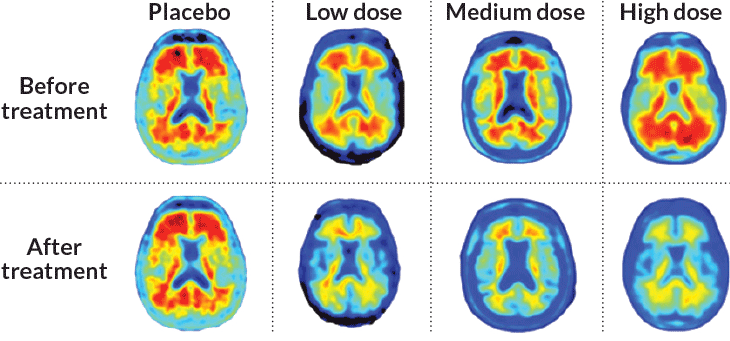Researchers may or may not have found a new breakthrough for Alzheimer’s patients, but as of yet is too early to say. However, what they will find out is after years of research into the origins and treatment of Alzheimer’s, have they actually been looking in the right place?
Alzheimer’s disease affects more than 5 million people just in the United States alone. It’s caused by a build-up of the amyloid beta protein, which destroys nerve cells and starves vital areas of the brain, and so far, there has is no cure. However, researchers have just discovered that Aducanumab may hold the answer. The new hypothesis has been named the amyloid hypothesis. This drug safely lowers A-beta levels and allows the amyloid hypothesis to be put to the test.
To verify the effectiveness of aducanumab, a trial was set in place that involved 165 people receiving the drug and over the course of one year it was reported that the amyloid-beta levels in these people’s brains had declined. They also discovered that the higher the dose, the more A-beta that was cleared out. Suggestions were also made that these higher doses had cognitive improvements too, but further studies would need to be done to confirm that.

Substantial evidence suggests that A-beta is responsible for the origins of Alzheimer’s disease. It’s proved to be toxic to nerve cells, by first impairing their abilities, and then killing them off entirely. John Hardy is a neurologist of University College London and is one of those responsible for the proposal of the amyloid hypothesis, and he says, “All the basic science work and natural history work supports it.”
However, it’s not all been smooth sailing, and the results aren’t as clear-cut as they first seem. It appears that cognitively healthy people have been diagnosed with having A-beta accumulations within their brain’s. So, identifying the real cause of Alzheimer’s may not be that easy after all. Even Hardy recognizes that this is one tough challenge, but he isn’t prepared to give up the fight just yet. Larger trials involving aducanumab will be carried out and will run until 2022. Hopefully, by then scientists will have enough data and conclusive evidence to determining the true origin of Alzheimer’s and hopefully begin to develop a real cure.
More News To Read











